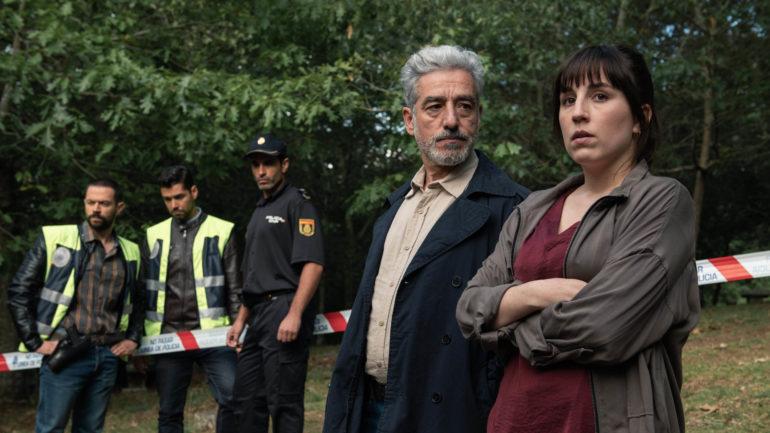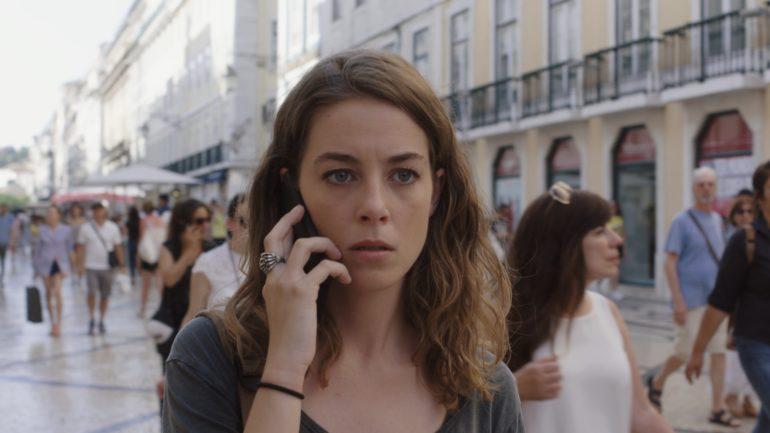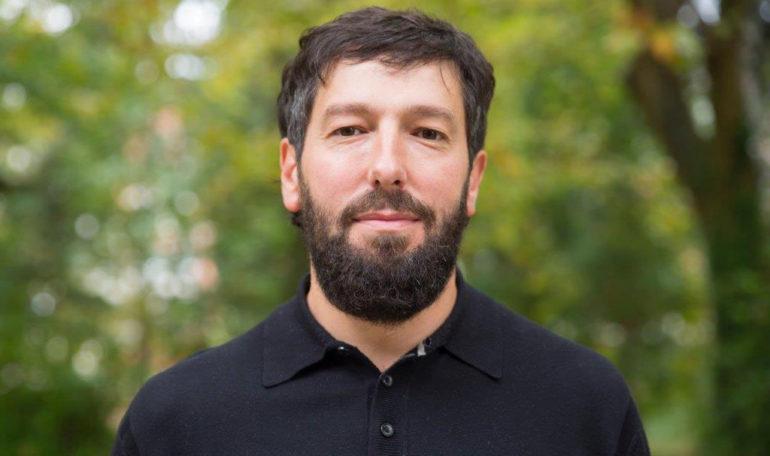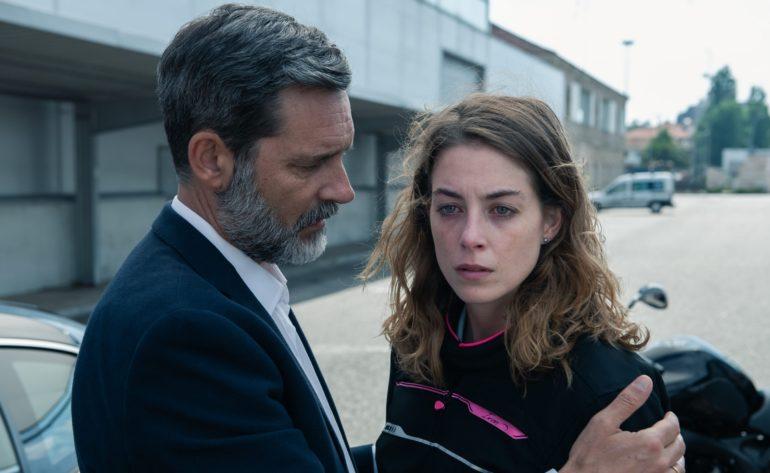‘Hierro’ Producer Alfonso Blanco on New Series ‘Dry Water’ (EXCLUSIVE)
By John Hopewell
LOS ANGELES (Variety.com) – MADRID — “Dry Water” starts with a steadily advancing aerial shot of Lisbon, then its iconic squares, next cuts to stables used to fence firearms, then to Teresa, as she mounts her motorbike to pick up younger brother Paulo, whom she dotes on, at Lisbon’s extraordinarily modern central railway station.
After they meet their mother, cut to another aerial shot, of Spain’s Vigo, part of Galicia and another port city, in brilliant sunshine, its Atlantic ocean a deep blue.
Paulo returns to Vigo, where he works for his godfather, Mauro, in his shipping business down at the port. The next day he’s found dead with a shot to the head. Neither the investigating police officer, the soon to retire Viñas, nor Teresa, think it’s suicide.
Mostly unspooling in Vigo, in geographic terms, “Dry Water” lies off the beaten track, a virtue Spanish producer Portocabo, based in Galicia’s A Coruña, exploited to spectacular results in prior crime thriller “Hierro,” set on the Canary Island of that name, which launched in June as Movistar+’s 15th Original Series to become its most-watched ever over its first 80 days of release.
In industrial terms, however, “Dry Water,” which is sold by London-based DCD Rights, may be all the more extraordinary: the first partnership between TVG and RTP, Galicia and Portugal’s public broadcasters, in which a series’ producers retain IP, dangling before the TV stations the possibility of territorial rights to a local series which is high-end in budget and production values, and sits somewhere between free-to-air and premium pay in its registers.
Part of the charm of “Dry Water” is its lack of premium TV hard-boiled frenzy. There’s enough time to take in Lisbon below her as Teresa mounts her bike. But it plumbs the same core issues -family, human moral complexity . as much pay TV scripted. Variety talked to Alfonso Blanco, “Dry Water” creator riding high after “Hierro,” now renewed for Season 2, about his Mipcom Market Screening.
“Hierro” was made for a pay TV platform, Spain’s Movistar+, and a very upscale broadcaster, France’s Arte. “Dry Water” is made for two public broadcasters,Galicia’s TVG and Portugal’s RTP. Did that mean a change of register?
Blanco: At times the story needs to be made clearer from the outset. “Hierro” gradually took on a larger dimension: in Ep. 1, everything wasn’t clearly set out. In “Dry Water” by contrast, we tried to make motivation a bit clearer. and shape solid characters, not just bland, conventional, TV cut-outs.
And plot?
We were especially careful about giving a more classic structure to the series. That’s the only major change. There’s a clear leading character – Teresa; a mystery’s set up in the first episode. Ep. 1 clearly presents all the questions to be resolved, as well as the main themes of the series.
Rather like “Hierro,” the series unspools in locations which, at least for international viewers, might not be that well known: Lisbon, and above all Vigo. Was that a coincidence, or sought-for?
It was clearly sought after. It allows us to continue along the lines of what we’d begun in “Vidago Palace”: Making a co-production between Spain and Portugal and finding elements for a crime drama that were new and compelling to the audience. So “Dry Water” ”is set around a port, a city like Vigo, where everything revolves around the sea, and arms trafficking wasn’t something that had necessarily been dealt with. Departing from that, through something very local, and adhering to the “Hierro” model, we asked ourselves: “What specific elements do we find in such a setting that could prove compelling to a global audience?” From there on, it was all about homing in on that in the most realistic, classical way, because, after all, it’s a series that’s in essence very classical.
One facet the series does share with pay TV or SVOD is the complexity and contradictions of character, led by Mauro, Paulo’s godfather and boss, but who may be indirectly responsible in part for his death…
Yes, the idea’s that one narrative driver, Mauro, is a complex character with moral contradictions. This is a series where nothing is what it seems and Teresa will be plunged into a world of smoke and mirrors, a world is framed by the family structures. The death of Teresa’s father has meant that Mauro has come to fill this void. It’s a family story, about loss, linked to a family context. Those are the two central themes. And we enter those two worlds through the mechanisms of the thriller.
There’s also a socio-economic background to the thriller: The gun-trafficking with Eastern Europe and the Congo, although it’s not clear in Ep. 1 what exactly is Mauro’s relationship with gunrunner Lázaro. It’s as if you’re aiming to introduce elements more often found in pay TV into a free-to-air story, but gently…
That’s exactly what we set out to do. We set out to take classic free-to-air TV fiction to a new level, and not fall short of the expectations of our two main clients. The work with both channels was always finding that balance and saying “O.K., we embrace your idea, but we’re going to take it a step further,” driving for strove a type of product that moved closer towards that realm of premium TV, which is, as far as I’m concerned, where fiction is heading at present.
Another pay TV aspect is the high production value….
Yes, no studio sound.stages, just natural locations, with fixed-optics, sensors, and so on. There was a lot of post-production work, color correction. We were working with two public broadcasters that did not, on their own, possess the resources for this level of production, with Portocabo tapping into different sources of finance to secure the type of budget that allowed us to play in such a league.
Partnering with SP Internacional, the biggest independent production company in Portugal, were you able to retain part of the IP?
This series is very important for us. It’s the first series in Spain, and of course in Portugal where 100% of the copyright is retained by the producers. That’s a big consideration. We convinced the channels that the really important thing for them was to make the best series possible and have full rights for their territory. We have truly broken a barrier here. With tax breaks and public financing, private investors and distribution, we’ve managed to almost triple the level of investment normally made by these channels, while allowing them to have broadcast rights and some small revenue corridor. But copyright in this case belongs 100% to the production companies.
But co-production’s not just about financing…
I can proudly say that on Portocabo’s last five projects, we have kept IP. In all of them, we have been partners with channels Furthermore, since I brought in international partners such as SPI on “Dry Water” and France’s Atlantique, in the case of “Hierro,” it also means that this partner, in addition to bringing financing, also makes the project better. The Portuguese partners brought their vision, local knowledge and talent. And the series is so much better for it. Financially, it is more solid and creatively it’s also better.
I also have the impression that you’ve tried to give an opportunity to a wide range of writers to gain experience, writing at least part of the episode. Or maybe I’m wrong…
No, you’re right again. We’ve stuck to a very clear editorial line, with me as executive producer very involved in content, with very big writing teams, with lots of people doing special training. For “Hierro,” some writers would work on just one script. There would be scriptwriting work teams, and there would always be a senior writers, to guarantee the quality of writing for the series. The idea is to keep it like that, with three fully functional scriptwriting teams next year. We’ve been working on that formula for a year and a half
You’re looking to ramp up production, or broaden your writers’ range, or both?
Both. Thanks to the success of “Hierro” and the success of the “Dry Water” model with Portugal, the company will grow. We’re going to take on more productions and we’re very pleased about that. But we still want to keep a boutique brand, with a very clear scriptwriting and character design hallmark; which isn’t easy. It’s not formulaic writing, but very demanding writing. Now, we’re getting offers from Italy, Germany, all seeking input on content.The idea is to have, next year, “Hierro”-quality creative teams, which isn’t easy. We’ve been writing dramedies and romantic drama for many years and it’s difficult to maintain that quality of writing.
The battle for success is a battle for talent…
Yes. It’s not about investing in machines or big systems. It’s about investing in talent, people who can write, who understand what this is all about. And who speak languages. We do bilingual versions. “Hierro” was written initially in Spanish, then translated into English. When we got down to actual work, the work was done in English. In the case of “Dry Water,” we have a partner, distributor and partner, DCD Rights, which obliged us to translate from Spanish to English, and there were also lots of conference-calls in English. In Spain there aren’t many people with sufficient command of languages, but we are finding some very good people.




